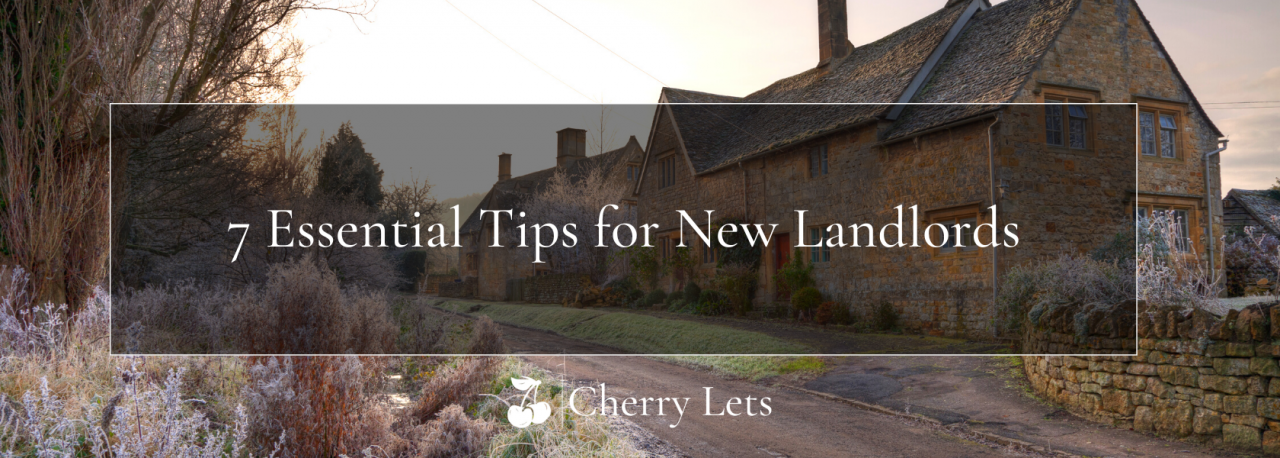Becoming a landlord for the first time is an exciting prospect, with not only the opportunity to bring in some additional income but also the chance to expand your portfolio further and perhaps even start up your own property business.
However, it can be tricky to know where to start once you have invested in your first property and you don’t want to be making too many costly mistakes.
Fortunately, you can avoid the most common landlord pitfalls by simply following our seven essential tips for new landlords.
1. Do your groundwork
Before you start to market your rental property and look for potential tenants, if you haven’t done so already, you first need to research the local area thoroughly.
Is your property near good local schools? Is it near a university or college?
This can be helpful in deciding what type of tenants your property will appeal to, for example, families, students or working professionals.
It is also a good idea to find out how much similar properties in the area are currently renting for, as this can act as a benchmark for your own chosen monthly rental price.
2. Take out insurance
Although landlord insurance isn’t a legal requirement for renting out a property, it is highly recommended as it covers everything from accidental damage to structural issues caused by hazards such as fire, snow or strong winds.
You may also want to take out rent guarantee insurance which protects you if your tenant fails to pay their rent. It can also cover the cost of any legal fees if you need to evict a tenant.
Your tenants are responsible for taking out their own content insurance to cover their belongings.
3. Find reliable tenants
One of the easiest ways to find good tenants is through word of mouth. Speak to your family, friends and work colleagues to see if they are aware of anyone who is looking to rent a property. You can also advertise for tenants on a variety of reputable websites or use a letting agency.
To attract the best possible tenants, ensure your listing describes the property in full and includes good quality photographs as well as advertising your property at a competitive market rate.
You should always check a potential tenant’s rental history and credit score, as well as perform a criminal background check. If the results are preferable, it now comes down to your natural instincts.
How do you feel about the tenant in question? Do you feel like you can trust them?
If yes, you’ve found your first tenants. Congratulations!
4. Create a tenancy agreement
Once you have found your tenants, you now need to draw up a written tenancy agreement which details all the terms and conditions of the tenancy and gives you as the landlord, and your tenants rights.
This is extremely important as it will ensure the protection of your property, set out the obligations of your tenants and help prevent any future disputes.
If you have found your tenants through a professional letting agency, the tenancy agreement can be professionally drawn up through the agent.
5. Place the deposit in a TDP scheme
Landlords are now legally required to place their tenant’s deposit in a government-backed tenancy deposit protection scheme. This was created to stop rogue landlords from refusing to give back their tenants’ deposits after they have moved out.
You must place your tenant’s deposit in a scheme within 14 days of receiving it and you also have to inform your tenants of which scheme you have chosen within 30 days.
6. Ensure your property is energy efficient
You should also strive to improve your property’s Energy Performance Certificate (EPC), to reach the minimum energy efficiency standard (effective April 2020).
Ways in which you can make your property more energy efficient include:
- Upgrading your boiler
- Sealing windows and doors
- Installing double glazing
- Installing loft and wall cavity insulation
- Using energy efficient lightbulbs
- Installing smart meters
Since April 2016, tenants have the right to ask their landlords to make their properties more energy efficient, and furthermore, as a landlord, you are legally required to make adequate improvements.
7. Maintain a good relationship with your tenants
Arguably one of the most important aspects of becoming a good landlord is ensuring that you are able to build and maintain a healthy relationship with your tenants. Effective communication, on both sides, is crucial if you want to avoid any problems or disputes.
Try and respond as quickly as possible to any requests from your tenants and listen to any concerns that they may have. Once you find reliable tenants who pay their rent on time and look after your property, you don’t want to lose them!
If you are considering letting your property in North Oxfordshire & South Northants call our team at Cherry Lets on 01869 337346 for friendly help and advice on all rental aspects.






Share this with
Email
Facebook
Messenger
Twitter
Pinterest
LinkedIn
Copy this link